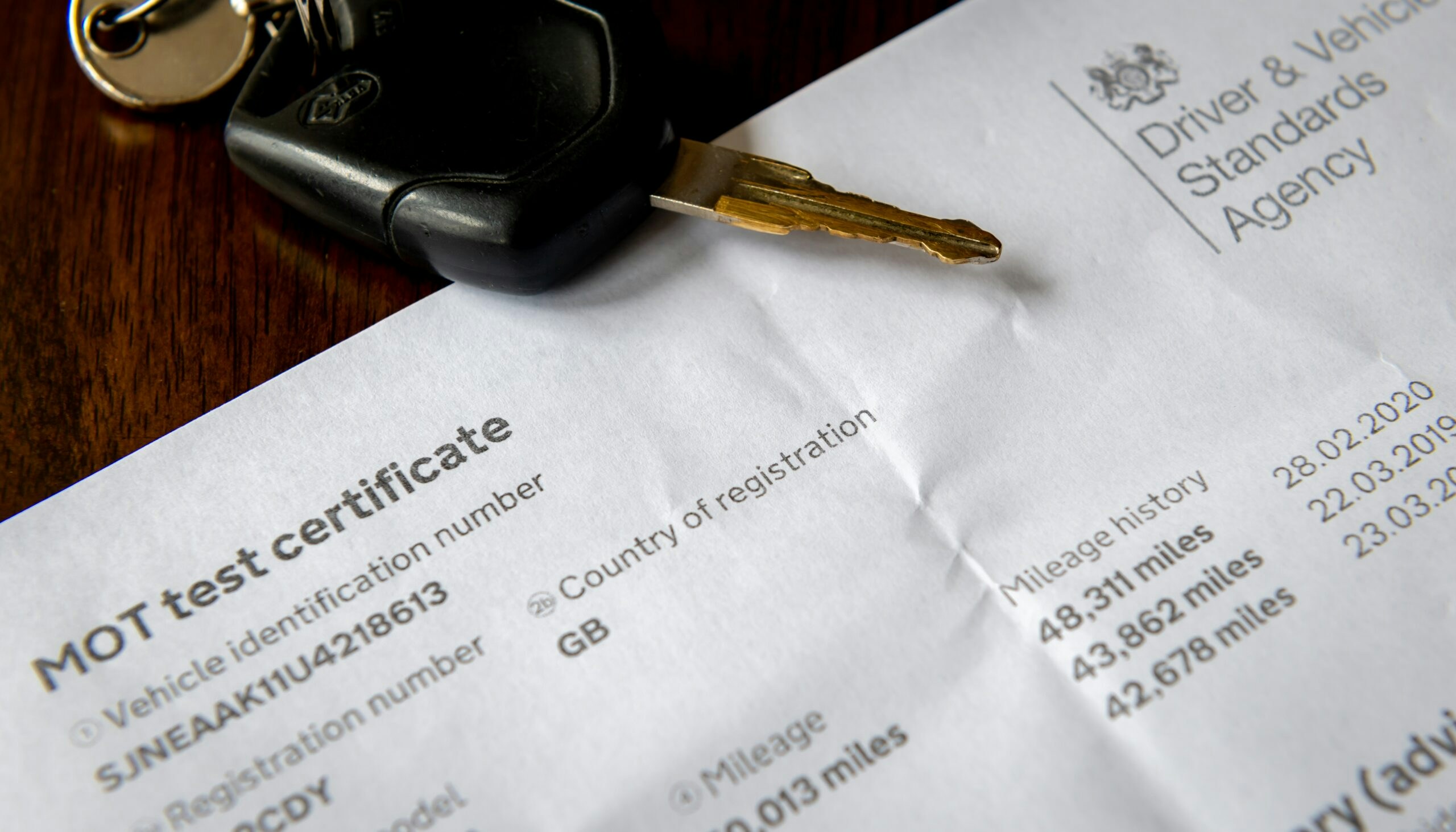What documents should I get when buying a used car?

If you’re considering selling your vehicle and buying a used car, having all the correct documentation is essential. It helps ensure that everything goes smoothly.
The documents you need include:
✅ The V5C logbook to confirm ownership
✅ A valid MOT certificate to verify roadworthiness
✅ The service history to check the car’s maintenance record
You should also obtain any warranty papers, a sales receipt, and a check for outstanding finance. These documents help protect your purchase and ensure legal compliance.
Keep reading to find out all about the documents you require when purchasing a used car.
- When buying a used car
- The essential documents for buying a used car
- Verifying the car’s legitimacy and condition
- FAQs

When buying a used car

The importance of thorough documentation
Thorough documentation is crucial when buying a used car, as it safeguards your investment and ensures legal ownership. Proper records like the V5C logbook, MOT certificates, and service history provide transparency about the vehicle’s past, helping you avoid potential issues like outstanding finance or hidden damages.
Additionally, a well-documented purchase protects you from fraud and gives you peace of mind, knowing that you’re making a well-informed, legitimate transaction.
The essential documents for buying a used car
V5C registration document
The V5C registration document, commonly known as the logbook, is crucial as it proves the car’s legal ownership and outlines key details like the vehicle’s registration number, make, and model. Without it, you can’t transfer ownership or tax the vehicle.
Always ensure that the seller’s details match the logbook and check for the official watermark to avoid potential fraud or discrepancies.
MOT certificate and history
The MOT certificate is essential for confirming that the car meets UK road safety and environmental standards. Request the current MOT certificate and review the history to identify any recurring issues or advisories.
An extensive MOT history provides insight into the car’s condition and helps you anticipate potential repairs, ensuring you’re not caught off guard by unexpected costs.
Comprehensive service history
A comprehensive service history records the car’s maintenance, including:
👍 Routine services
👍 Repairs
👍 Part replacements
This documentation is vital as it indicates how well the car has been cared for, helping you assess its reliability and potential longevity. A well-maintained vehicle with a full service history is typically more valuable and less likely to have running problems.
Proof of purchase/receipt
Obtaining a proof of purchase or receipt is crucial when buying a used car, as it’s a legal record of the transaction. This document should include:
🧑 Buyer’s and seller’s details
📆 Date of sale
💷 Agreed price
🚘 Brief description of the vehicle
A receipt protects both parties in case of disputes, providing clear evidence of the terms of the sale.
Verifying the car’s legitimacy and condition

DVLA vehicle check
A DVLA vehicle check is essential for confirming the car’s basic details, such as its:
👉 Registration
👉 Tax status
👉 MOT expiry date
This check verifies the car’s identity and ensures it matches the details provided by the seller.
Additionally, it helps identify any discrepancies or potential red flags, such as whether the vehicle has been reported stolen or written off in the past, ensuring you make a secure purchase.
Private history checks and what they cover
Private history checks offer a deeper insight into a vehicle’s background, covering aspects the DVLA check might miss. These checks typically reveal whether the car:
🚩 Has outstanding finance
🚩 Been in accidents or written off
🚩 Been reported stolen
They can also verify mileage accuracy and uncover whether the vehicle has been imported or has had multiple previous owners. Investing in a private history check helps avoid potential pitfalls and ensures a safer purchase.
Physical inspection and test drive protocols
A physical inspection and a test drive are crucial to assess the car’s condition beyond what documents can reveal. During the inspection, check for signs of damage, rust, and wear, particularly in the engine, tyres, and bodywork.
A test drive allows you to evaluate the car’s performance, including the engine, brakes, suspension, and steering. Pay attention to unusual noises or handling issues.
This hands-on assessment ensures the car meets your expectations and is roadworthy.
FAQs
Should I get a receipt when buying a car privately?
Yes, obtaining a receipt is essential when buying a car privately. It serves as proof of purchase, detailing the transaction and protecting both parties in case of disputes. Ensure it includes the buyer’s and seller’s details and the date, price, and vehicle information.
What is the safest way to pay for a used car in the UK?
A bank transfer is the safest way to pay for a used car in the UK. It provides a secure, traceable payment method that can be verified quickly. Always confirm the seller’s details and ensure the transfer goes through before taking ownership of the vehicle.
Is bank transfer safe for sellers?
Yes, a bank transfer is generally safe for sellers as it directly deposits funds into their account, reducing the risk of fraud. However, sellers should wait until the transfer clears in their account before handing over the vehicle or keys to ensure the payment is legitimate.

Thinking of buying a used car?
Got your eye on a second-hand car but not sure you know all you need to know about buying it? Worry no more! Our guides on purchasing used vehicles will help you avoid getting stung when it comes to handing your money over.
The information provided on this page is for general informational purposes only and should not be considered as professional advice.